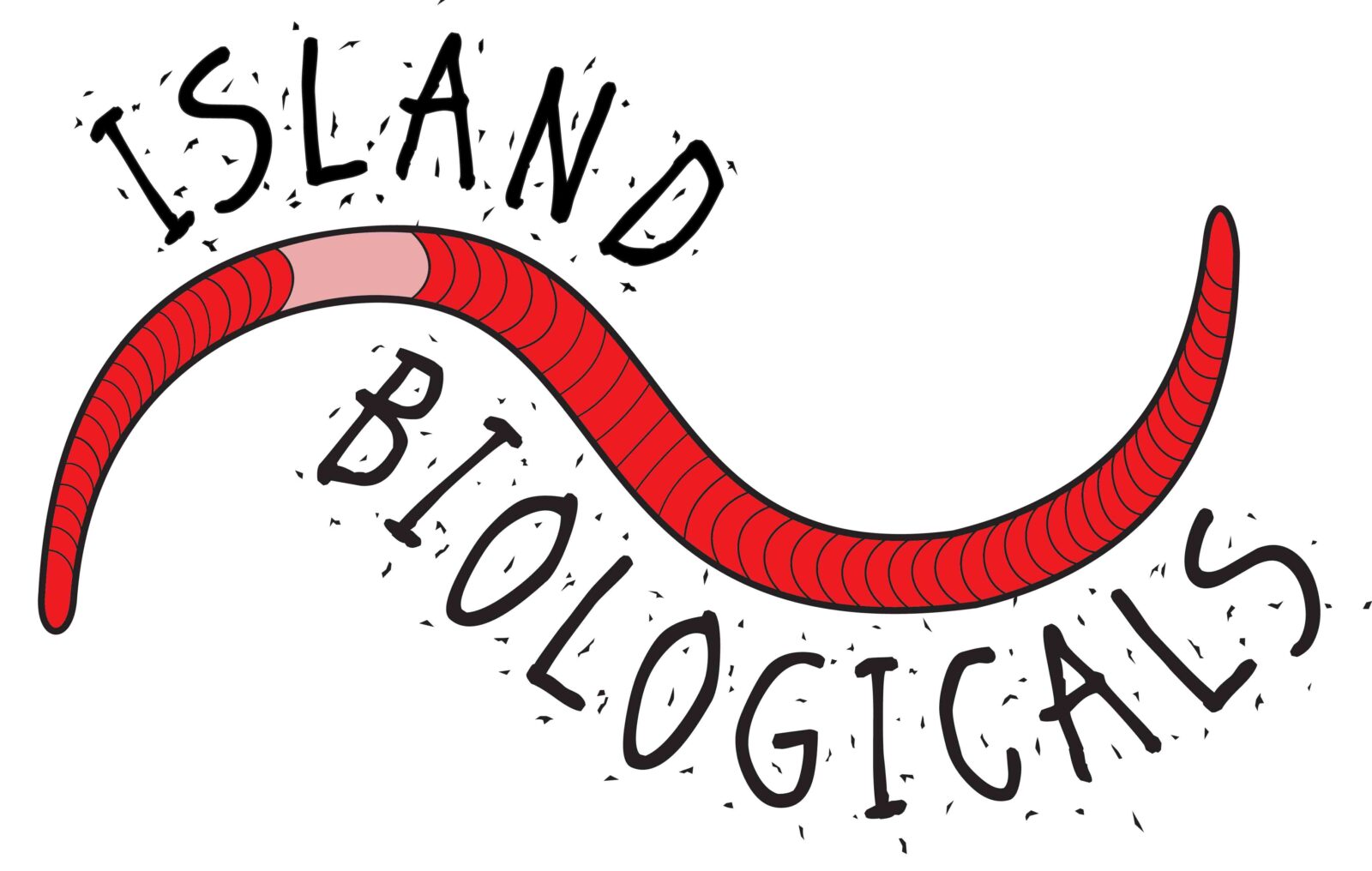You may not have considered it, but regenerative agriculture applies even to worm farmers, like me. I love being part of people’s regenerative journeys, and it has reinvigorated my passion for what we do.
Our farm is on Oxley Island, an island in the delta of the Manning River on the NSW mid north coast. We established in 2013. I believed in the value of worm products for building life in soil and plants, and in harnessing ‘waste’ products. I called my business Islands in the Stream Vermiculture.
For four years I plugged away, developing a liquid vermicast extract called Biocast+, seeing plants respond favourably; remarkably even at times, and learning more and more about the amazing world of soil and plant microbes. I felt like an island in the sea of conventional agriculture though, being physically surrounded by conventionally managed dairies, and ideologically struggling to meet people who were on the same page of enhancing natural processes and valuing soil.
2016 was the year I almost threw in the towel. About a thousand times. The only reason I didn’t was a stubborn belief that I was right – well, that the worms were right.
Morale recovered though and in 2018 I stumbled across the people who I now consider to be my team – regenerative agriculture practitioners with a contagious passion for what they do. We have also found the place where our products fit. These are people who we don’t have to explain to what a soil microbe is and why they want it. Instead, they are using our product and are calling us because they’re pumped to share their results.
I had one bloke ring to share his excitement of seeing earthworms on his property for the first time in 30 years after using Biocast+, including quite some years of regenerative practices. I had another call to say he better get some more because he got one graze and 200 square bales of clover beyond what he expected to get off a paddock. Another noticed that he could still get his tread-ins in the ground – it hadn’t hardened up like previous years despite the dry conditions, and that the roots of his grasses had enviable dredlocks.
We are naturally excited to see these results, but I’m even more excited to share them with people who are trying so many things to regenerate their land. They’re showing that it’s not about whether or not you add one product, but about the whole picture, including mindset.
Not only are we seeing more productive farms with healthier plants and animals, but we are seeing that, like me, this movement is regenerating people. There’s a number of people I’ve spoken with who have said they would have left the industry if they hadn’t found regenerative agriculture. We are also seeing an explosion of community based around regenerative ideas, which is wonderful to be a part of.
The amount of different people with different backgrounds in this space right now is really exciting and inspiring. Cutting edge conversations between enthusiastic people are happening all the time. The momentum now is so great that it’s going to keep going on and on. I’m not alone on my little island any more.
